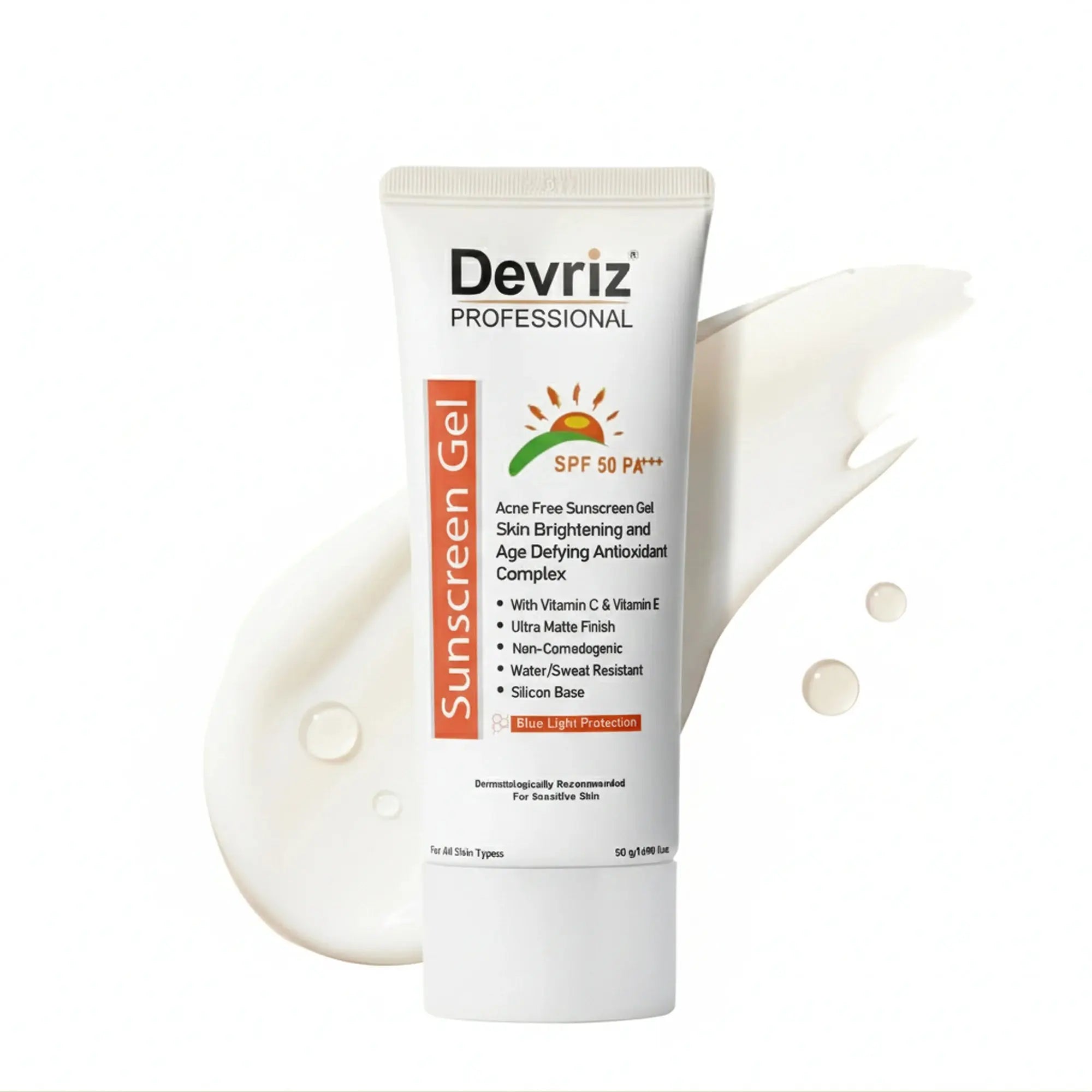Are confused about pigmentation’ and ‘dark spots, used interchangeably in the skincare world? The blog will deeply analyse the differences, for the right treatment.

The key point of contradictions between pigmentation vs dark spots is melanin Production.
Pigmentation is the natural colouring of the skin. While, dark spots - a specialised form of hyperpigmentation, typically are small areas of the skin that get darker than the surrounding area.
When we refer to skin pigmentation , we find balanced melanin production, with natural and even skin tone being its main attributes.
But in the case of dark spots, there is an overproduction of melanin, in specific parts, leading to darker patches or spots.
Knowing the differences between the two phenomena is good for effective skin care and treatment.
The Blog will delve deep into the differences between pigmentation and dark spots, combined with the causes and strategies to manage and address these problems.
Also Read:- Best Ways To Remove Dark Spots On Face
Key differences between pigmentation and dark spots - A deeper dive

Here are the main indicators or parameters of pigmentation differences and dark spot differences that will help you arrive at effective treatment remedies and solutions for both combined:
Meaning and Generalization
To define in broader terms, Pigmentation includes various types of discolouration in the skin.
Examples include hyperpigmentation, hypopigmentation, and other problems affecting skin tone.
Dark spots are a kind of hyperpigmentation - identified by small, concentrated parts of darkened skin.
Respective Causes
While there are some common causes of pigmentation and dark spots, like sun exposure and skin injuries.
Certain pigmentation problems like melasma are often broadly linked with hormonal changes and genetics.
dark spots on the face are often linked with localised skin damage like sun exposure or post-inflammatory hyperpigmentation.
Treatment methods
Treating pigmentation often needs to address the overall causes of hormonal, genetic, or environmental.
Topical methods, professional procedures, and lifestyle changes are the recommended treatment methods for pigmentation.
However, dark spots on the face are typically treated using targeted therapies that aim to reduce melanin production in affected parts through brightening creams or laser treatments.
Prevention steps
Treating pigmentation usually includes broad corrective steps such as sun protection, correcting hormonal fluctuations, and preventing skin trauma.
Dark spot treatment is tilted towards sun protective measures and other skin inflammation or injuries to treat lasting marks.
Must Read:- How To Remove Pigmentation From Face
Treatment and Management Strategies: Pigmentation vs dark spots

Treating Pigmentation and dark spots is a deadly combination of topical treatments, professional treatments, lifestyle, and natural remedies such as:
Topical Treatments For Pigmentation Vs Dark Spots
Various topical treatments hydroquinone, retinoids, and vitamin C are good for treating pigmentation.
Hydroquinone is the golden standard for treating pigmentation. It blocks the melanin production activity.
Retinoids as vitamin A derivatives help fade pigmentation over time. As the best brightening agent, vitamin C helps lighten discoloured skin parts.
For dark spots on the face, liquorice extract and niacinamide as brightening agents lighten dark spots over time.
Exfoliants like alpha hydroxyl acids (AHAs ). Mostly present in face washes, decreases the appearance of dark spots.
Professional Treatments for Pigmentation Vs Dark Spots
For stubborn pigmentation, professional treatments are non-negotiable. Chemical peels eliminate the upper dermis to provide a clear skin surface.
Laser therapy uses a beam of light to break dark pigments and boost healthy skin regeneration.
For quicker results in dark spots, there are three best professional options. First is Microdermabrasion, and second is IPL(intense pulse light ) therapy and Cryotherapy.
Microdermabrasion exfoliates the skin to remove dark spots. IPL employs dark pulses to break down melanin particles in dark spots. Cryotherapy uses a freezing technique for dark spots to eliminate it.
Lifestyle and Natural Remedies For Pigmentation vs Dark Spots
Simple lifestyle changes such as sun protection, diet, hydration, and regular skincare routine do make a lot of difference in treating pigmentation.
Also Read:- Natural Remedies for Reducing Skin Pigmentation
Daily use of Spf sunscreen helps prevent pigmentation from worsening and helps maintain even skin tone.
A diet enriched with antioxidants and staying hydrated helps reduce pigmentation.
Include gentle exfoliators and moisturizers in your skincare routine to keep your skin less prone to pigmentation problems.
For dark spot treatment, Natural remedies like Aloe vera, lemon juice, and green tea extract work wonderfully.
Aloe vera effectively lightens dark spots. The Citric acid ( natural bleaching agent) in lemon juice blocks dark spots. Enriched with antioxidants, green tea can help minimise the appearance of dark spots.
Also Read:- Dark Patches Removal Cream
Myth And Facts
Various Myths and misconceptions abound about Pigmentation and dark spot treatment. Take a look at the following debunking attempt to bust some of these myths:
Myth 1: Sun exposure is the only reason for pigmentation
Fact: Although, sun exposure is a crucial factor for pigmentation occurrence. This is not the only factor causing pigmentation. Moreover, variables like hereditary, hormonal fluctuations and skin wounds are also really important.
Myth 2:Using a face scrub or exfoliant can remove stubborn discolouration.
Fact: Exfoliation may seem like an easy way to get rid of unwanted blemishes on the face. But this is not an error-proof logic as we get to explore more pigmentation.
Rather too much exfoliation might destroy the outer protective skin layer, making the skin tone more sensitive.
Myth 3: Dark spots once treated, won’t come back.
Fact: Even if you treat or lighten dark spots, there is no guarantee that they will stay in that form forever.
Dark spots will develop or appear again due to several factors like UV exposure, hormonal fluctuations, or ageing.
Myth 4: Diet is the main reason for dark spots on my skin
Fact: People often tend to associate the cause of dark spots with diet or food, which is not true. Diet has no relation whatsoever with the formation of dark spots. Spots form due to different reasons and need to be treated differently to treat the problem.
Conclusion
Pigmentation and Dark spots are completely different terms describing your skin colour and its contradictions. The above-highlighted treatment strategies designed for pigmentation and dark spot differences will help.
Additionally, Sun protection, camouflage makeup to conceal dark spots and create a more even tone skin appearance, and Lifestyle changes like eating a balanced diet, maintaining good hydration, managing stress levels, and getting good hours of sleep can help prevent pigmentation issues and the occurrence of dark spots on the face.
Implementing proactive steps and the appropriate treatment options can help individuals achieve healthy, more radiant skin complexion to treat pigmentation and dark spot concerns.
But if problems persist, both for and in the dark spot, consult a dermatologist for professional advice.
The dermatologists can examine the specific issue, identify the root causes, and suggest tailored treatment solutions to treat the problem appropriately.
FAQs
Q1. Are pigmentation and dark spots the same?
Ans: Pigmentation and dark spots, even not the same, are related. Pigmentation is a broad umbrella term that refers to any condition affecting the colour of skin.
For example, hyperpigmentation (linked with skin darkening ) and hypopigmentation (linked with skin lightening).
Dark spots, on the other hand, are a specific kind of hyperpigmentation. So, to describe why dark spots and pigmentation are not the same but related.
We can say that while dark spots are a form of pigmentation, not all pigmentation issues are dark spots.
Q2. Can pigmentation be completely cured?
Ans: It is possible to improve pigmentation but whether you can cure it completely depends on the kind of pigmentation and its causes.
While post-inflammatory Hyperpigmentation PIH can be cured completely over time with proper treatment and sun safety measures.
But problems like melasma or pigmentation due to genetics require persistent treatment rather than a one-time cure. Consistent treatments might cure certain forms of pigmentation.
More stubborn forms like melasma require maintenance treatments for a complete cure.
Q3. Are dark spots the same as freckles?
Ans: No dark spots and freckles are not the same, even though both include skin colour changes. Freckles are light brown or tan spots that occur due to genetics and sun exposure.
Dark spots are larger parts of hyperpigmentation arising because of sun damage, ageing, or acne.
Unlike the freckles, dark spots are more persistent and might require treatments to fade. Freckles are generally generic and lighter and might Fade on their own.
Q4. Can I treat dark spots at home effectively?
Ans: Yes, you can treat dark spots at home, if they are mild or newly formed. Various topical treatments and sun protection using spf 30 or above regularly are necessary to prevent further formation of dark spots or natural remedies like aloe vera, or green tea extract might help.
To treat critical dark spots, you need to talk to a dermatologist for professional dark spots treatment methods.
Q5. What is the best prevention method for pigmentation?
Ans: The best prevention method for pigmentation is continuous sun protection using spf sunscreen.
Also, wearing protective clothing with a good skincare routine enriched with antioxidants and vitamin C, and using regular gentle exfoliation to help remove dead skin cells to keep the skin even-toned can help prevent pigmentation.
Last but not least, managing hormonal changes and managing skin trauma can help with pigmentation.





